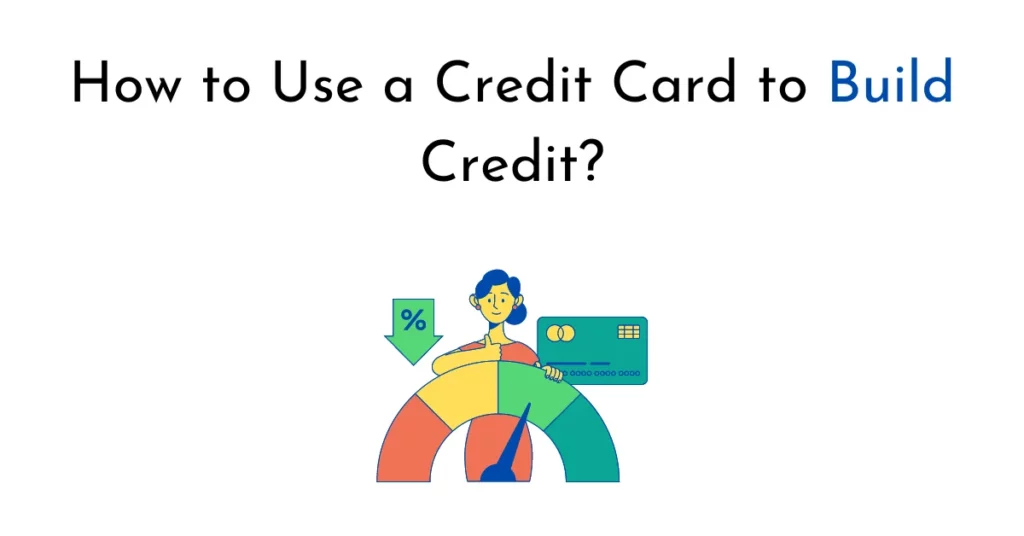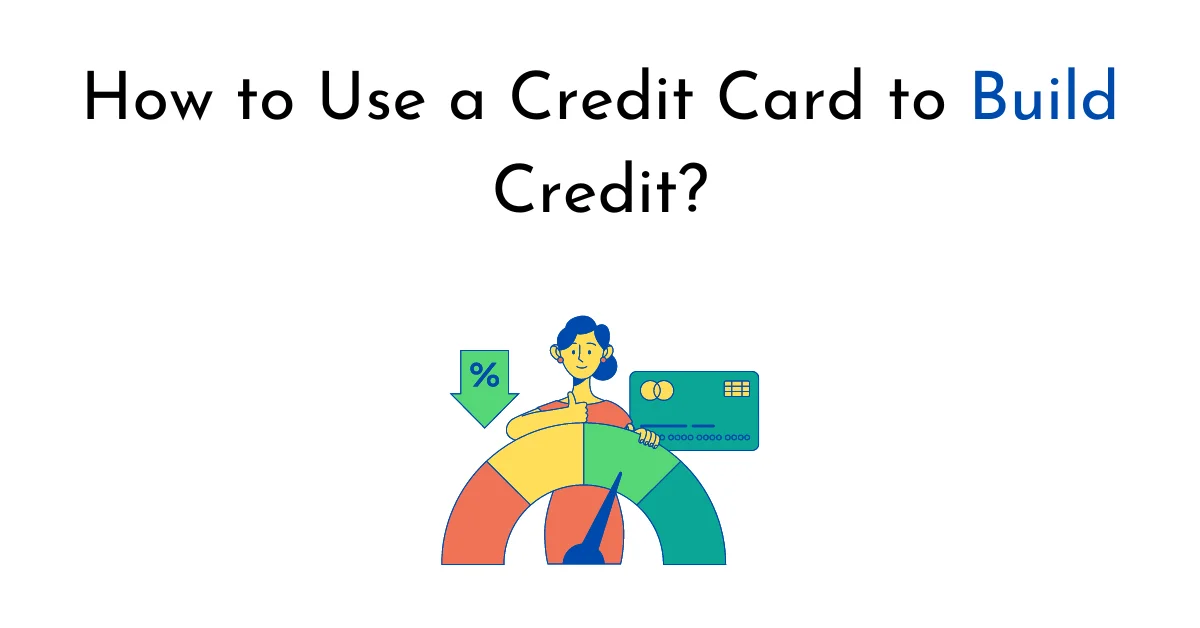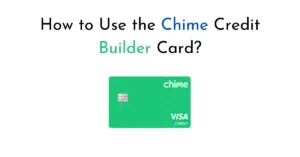Credit cards are powerful financial tools that can help you build and improve your credit history.
When used responsibly, they provide an excellent opportunity to establish a positive credit record, which can benefit you in various ways, from securing better loan terms to enhancing your overall financial well-being.

In this comprehensive guide, I’ll tell you the ins and outs of using a credit card to build credit effectively. Whether you’re new to credit or looking to boost your existing credit score, these strategies will set you on the path to financial success.
Understanding Credit and Credit Scores
Before diving into the specifics of using a credit card to build credit, it’s crucial to understand the basics of credit and credit scores.
Your credit score is a numerical representation of your creditworthiness, and it is used by lenders to assess the risk of lending you money. FICO and VantageScore are the most commonly used credit scoring models, with scores ranging from 300 to 850.
Factors that influence your credit score include:
- Payment history: Making on-time payments consistently is crucial for maintaining a good credit score.
- Credit utilization: The percentage of your available credit that you’re using. Keeping it below 30% is generally recommended.
- Length of credit history: The longer your credit history, the better. Opening and maintaining a credit card account can help you establish a positive credit history.
- Types of credit: Having a mix of different credit accounts, such as credit cards, loans, and mortgages, can positively impact your credit score.
- New credit applications: Frequent credit applications may suggest financial instability and can negatively affect your credit score.
Using a Credit Card Responsibly
To effectively build credit with a credit card, it’s crucial to use it responsibly. Follow these best practices to maximize the positive impact on your credit score:
- Choose the right card: Start by researching and selecting a credit card that suits your financial situation and goals. Look for cards that offer low interest rates, no annual fees, and rewards programs that align with your spending habits.
- Make timely payments: Paying your credit card bill on time is the most important factor in building credit. Set up automatic payments or reminders to ensure you never miss a due date.
- Keep credit utilization low: Aim to keep your credit utilization below 30%. For example, if you have a credit limit of $5,000, try to keep your outstanding balance below $1,500.
- Pay in full: Whenever possible, pay your credit card balance in full each month. This demonstrates responsible credit management and prevents unnecessary interest charges.
- Avoid carrying a balance: If you must carry a balance, try to minimize it and pay it off as quickly as possible to reduce interest charges.
- Limit new credit applications: Applying for multiple credit cards within a short period can raise red flags to lenders and negatively impact your credit score. Be mindful of your credit applications.
- Regularly review your credit report: Monitor your credit report for any errors or discrepancies. Reporting any inaccuracies promptly can help maintain a healthy credit profile.
Utilizing Credit Card Features to Build Credit
Credit cards offer several features that can be used strategically to build credit effectively. Here are some additional tactics to consider:
- Authorized user: If you’re new to credit, becoming an authorized user on someone else’s credit card can help you establish a credit history. Ensure the primary cardholder has a good payment history and low credit utilization.
- Secured credit cards: If you have limited or poor credit, a secured credit card can be a valuable tool. Secured cards require a security deposit, which serves as collateral and sets your credit limit. By using a secured credit card responsibly, you can gradually improve your credit score and eventually qualify for an unsecured card.
- Credit builder loans: Some financial institutions offer credit builder loans specifically designed to help individuals build credit. These loans work by holding the borrowed funds in a locked account while you make regular payments. Once the loan is repaid, the funds are released to you, and your timely payments are reported to the credit bureaus, positively impacting your credit score.
- Regular usage: Using your credit card for regular, small purchases and paying off the balance in full each month demonstrates responsible credit usage. This consistent activity shows lenders that you can manage credit responsibly over time.
- Credit limit increases: As you build a positive credit history, you may be eligible for credit limit increases. Requesting a higher credit limit or accepting offers from your card issuer can help improve your credit utilization ratio, assuming you maintain responsible spending habits.
- Keep old accounts open: Closing old credit card accounts may negatively impact your credit score. Even if you no longer use a particular card, keeping it open can contribute positively to your credit history and overall credit utilization ratio.
Key Takeaways
Building credit with a credit card is a long-term process that requires responsible financial habits and strategic credit management. Here are the key takeaways to remember:
- Understand the factors that influence your credit score, including payment history, credit utilization, length of credit history, types of credit, and new credit applications.
- Use a credit card responsibly by making timely payments, keeping credit utilization low, paying balances in full, and limiting new credit applications.
- Leverage credit card features like authorized user status, secured credit cards, and credit builder loans to establish and improve your credit history.
- Regularly review your credit report and dispute any errors or inaccuracies promptly.
- Be patient and consistent in your credit-building efforts, as it takes time to see significant improvements in your credit score.
By following these guidelines and practicing responsible credit card usage, you can effectively build credit and pave the way for a healthy financial future.
FAQs: Building Credit Fast with a Credit Card
Q: How can I build my credit fast with a credit card?
A: Building credit fast with a credit card requires responsible credit management. Make timely payments, keep credit utilization low (below 30%), and consider using strategies like becoming an authorized user, applying for a secured credit card, or utilizing credit builder loans.
Q: How much should I pay on my credit card to raise my credit score?
A: To raise your credit score, it’s generally recommended to pay off your credit card balance in full each month. Paying the full amount demonstrates responsible credit management and prevents unnecessary interest charges.
Q: How often should you use a credit card to build credit?
A: It’s beneficial to use your credit card regularly to build credit. Making small, regular purchases and paying off the balance in full each month demonstrates consistent credit activity and responsible credit usage.
Q: Should I pay off my credit card after every purchase?
A: While you can pay off your credit card after every purchase, it’s not necessary. As long as you pay off the full balance before the due date, you will avoid interest charges. However, if it helps you manage your finances better or keep track of your spending, paying off your credit card after every purchase can be a personal preference.
Q: Is it bad to pay off a credit card immediately?
A: No, it is not bad to pay off a credit card immediately. In fact, paying off your credit card balance promptly can be a responsible financial habit. It helps to maintain a low credit utilization ratio and prevents the accumulation of interest charges.
Q: Can I pay my credit card the same day I use it?
A: Yes, you can pay your credit card the same day you use it. Credit card payments can be made at any time as long as you meet the minimum payment requirement by the due date. However, paying on the same day may not be necessary if you can pay off the full balance by the due date to avoid interest charges.



